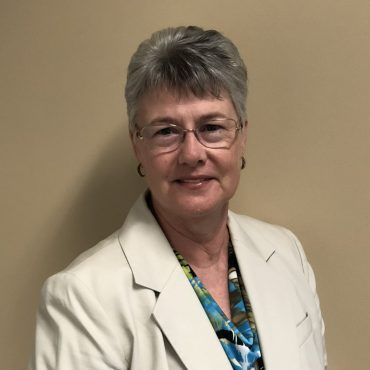Where Can FNPs Work, Besides Primary Care?
You’ve gotten your FNP degree, passed your board exam, and are ready to start looking for jobs, but where do you start? Or maybe you’re a registered nurse, and you’re unsure if becoming a nurse practitioner is right for you or what specialty you’d like to do. You’ve been told FNPs work in primary care throughout school, but is that the only option you have? NO, there are more options for you.
FNPs can work anywhere from hospitals, specialty clinics, urgent care, and MORE. In this article, we’ll discuss a few examples of this and what you can do with your FNP degree in the world of healthcare. You don’t have to be pigeonholed into the primary care world if you don’t want to.
So, let’s explore some options!
What is an FNP?
So what is an FNP? An FNP is a family nurse practitioner. FNP is a subtype of the overall career of the nurse practitioner. Nurse practitioners are advanced practice registered nurses who serve as leaders in healthcare. They work more closely with medical doctors (MD) to diagnose and treat their patients, which differs from a nurse who implements the treatment plan. An FNP works in family medicine. This is a general term that can include almost everyone and every type of patient, disease, and more.
FNPs work with various patients throughout their entire lifespan, including newborns, the elderly, adults with chronic disease, pregnant people, and everyone in between. Because of this training, FNPs are uniquely positioned to work anywhere after graduating, not just in primary care.
What can you do with an FNP degree?
So, where can you work as an FNP? ANYWHERE!
Primary care
Primary care is the most common (https://www.aanp.org/about/all-about-nps/np-fact-sheet) place where FNPs work. It involves serving your patients as their primary care provider and working with all types of patients, of all ages. While this is the most commonplace for FNPs to work, it isn’t the ONLY place.
Beyond primary care
While there are many settings FNPs can work in, here are a few of the most favored places.
Specialties
FNPs are qualified to work in specialties because of their broad training through their FNP programs, unlike, for example, a pediatric nurse practitioner or women’s health nurse practitioner. Specialties (https://www.nursingprocess.org/nurse-practitioner-specialties.html) that employ nurse practitioners include:
- Cardiology
- Dermatology
- Oncology
- Orthopedics
- Neonatologist
- Urology
- Endocrinology
- Nephrology
- Neurology
- Pain management
- Palliative care
- Surgery
- Holistic health
- Hospice
- Forensics
- Long term care
- Home health
Some specialties may require special certifications before you start working there, but often, the offices or organizations will offer that training to you to complement your FNP training. This will get you working as soon as possible.
Hospitals, emergency rooms, and urgent cares
Half of the NPs certified in 2021 reported having at least some hospital privileges, and 50,000 NPs work full-time in the hospital (https://journals.lww.com/aenjournal/fulltext/2015/10000/family_nurse_practitioner_or_acute_care_nurse.1.aspx). 12,000 NPs work full-time in the emergency room (ER) and 9,000 in urgent care. Other hospital areas where NPs work include individual units like the medical-surgical unit, the telemetry unit, or even specialized units, like labor and delivery or pediatrics.
Whether on a medical-surgical floor or in the ER, or in urgent care, inpatient practice is a growing and fulfilling specialty that FNPs can work in after graduating.
Pediatrics
While there is a pediatric nurse practitioner specialty degree, FNPs can also work in private practice and general pediatrics. Even FNPs who don’t work in pediatrics full time reported seeing pediatric patients regularly. Up to 75% (https://publications.aap.org/pediatrics/article-abstract/126/5/861/65221/Family-Nurse-Practitioners-Roles-and-Scope-of?redirectedFrom=fulltext) of FNPs see pediatric patients every day they work in family practice. This shows that FNPs can care for pediatrics and do so well! They can also work in pediatric specialties like pediatric gastroenterology or cardiology. These areas focus on chronic or acute conditions common in the pediatric scope like congenital heart defects, all of which FNPs can manage.
Women’s Health
There is also a women’s health nurse practitioner specialty degree – but FNPs work in women’s health, obstetrics, and gynecology. While they don’t usually deliver babies, they can provide general prenatal care and women’s health care such as well-women’s exams, sexual health counseling, and more. FNPs working in primary care will often see many of these women and these concerns as well.
Research
NPs and FNPs can also work in research or on research projects, especially for NP-specific research. Organizations (https://www.aanp.org/about/research-opportunities) such as the American Association of Nurse Practitioners offer research fellowships and opportunities that can help break into these roles. Colleges and universities often also have research projects. These projects can be funded by grants that employ healthcare workers such as FNPs to conduct research, work with the patients involved in the study, and more.
Academia
All faculty in FNPs programs are FNPs themselves, so FNP faculty positions are always an option. FNPs can also serve as faculty in bachelor’s programs or master’s programs for nurses or other nurse practitioners. These can be full-time or part-time, otherwise known as adjunct positions where you teach one or two days a week. It can involve a didactic curriculum or supervising students in the clinical setting.
Ready now?
Now that you can see the number of different places FNPs work, are you ready to start your journey? There are endless opportunities for FNPs, whether you are a nurse thinking about FNP school or a new FNP trying to get your first job. Check out United States University’s FNP program (https://www.usuniversity.edu/degrees/master-of-science-in-nursing-family-nurse-practitioner)today!
Alison Shely, DNP, FNP-C
Alison Shely, DNP, FNP-C is a nurse practitioner, nurse coach, and nurse content writer who specializes in articles, guest blogger, and healthcare worker wellness. She has been in nursing since 2014, working in intensive care, women’s health, and primary care as a registered nurse and family nurse practitioner. Her specialty topics include mental health, health and wellness, yoga philosophy and practice, and community health. She also serves as a health coach and mentor to other nurses and healthcare workers concerning healthy lifestyles and mental health.



